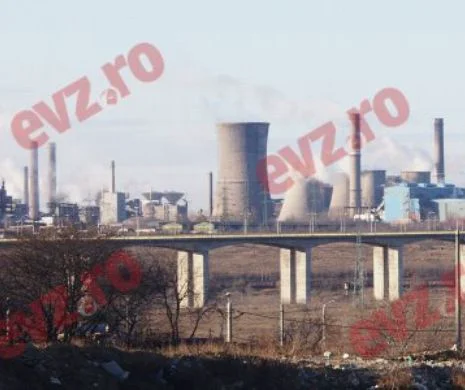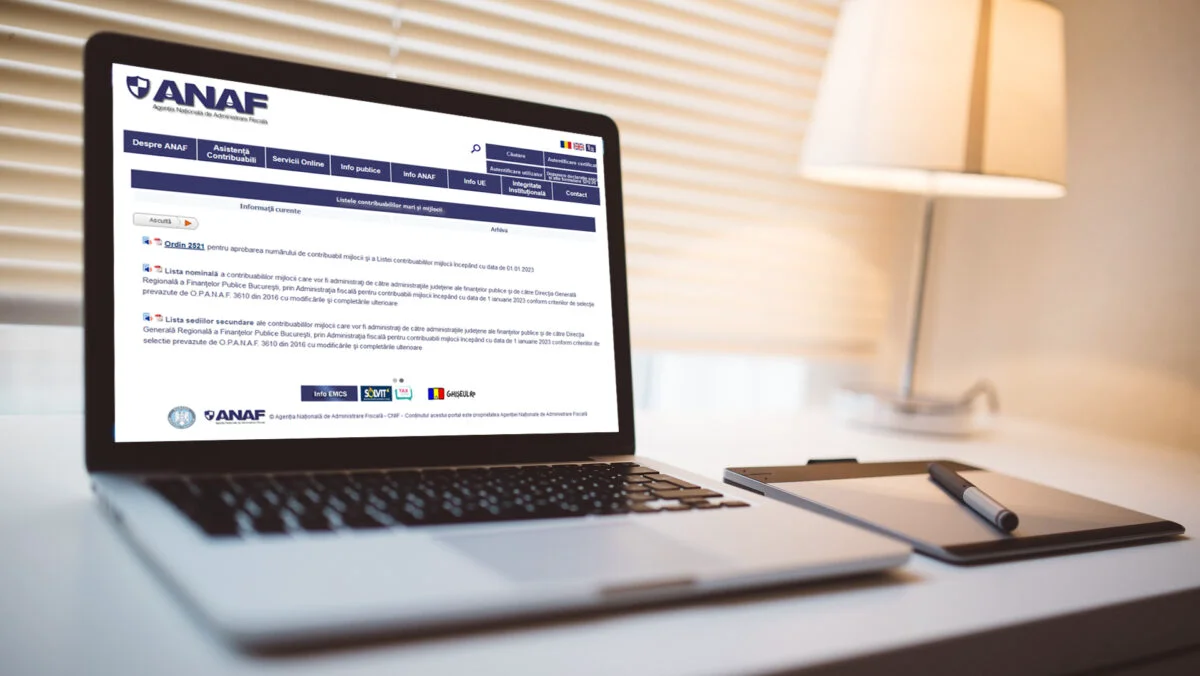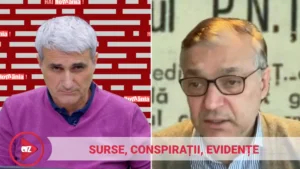The deep sleep of unions and politicians hands SIDEX on a silver platter to an adventurer
- Șerban Bu șcu
- 7 decembrie 2018, 10:55

Sanjeev Gupta, who wants to become the owner of SIDEX, is running a cosmetic image campaign to win the goodwill of the trade unions, Romanian authorities and politicians.
To prevent what happened at the steelworks in Ostrava, where his promises triggered a major collision with the trade unions and politicians in the Czech Republic. The Steelworkers' Unions in Ostrava, which also represents 6,000 employees, same as unions in Galaţi, are worried that the takeover will "permanently and irreversibly destroy the plant" and therefore asked for a "detailed plan and firm commitment to invest in the factory" according to the Sunday Times, an important UK newspaper, the Indian’s adoption country. Today, we present what other important publications have written about the Gupta family business. One can find out about unpaid debt to suppliers, bankrupt hedge funds, insurers suspending policies, and many other things we all need to know before losing such factory and, together with it, the heart of a city.
As if erupting from the optimism of the Romanian Centenary celebrations, we have witnessed the past few days a laudatio given by a central television to Sanjeev Gupta, who is in the race to take over SIDEX Galati.
The interview with Sanjeev Gupta, which seems to be the type of masked advertising, reiterates and launches new promises with a maddening enthusiasm. We hear (again) about the over 300 million euros that will be invested for the 50% increase in the production capacity of SIDEX Galati and, in order not to be abandoned in everyday banality before the holidays, the businessman is raising with the promise to engage in the construction of a motorway in a public-private partnership.
Practically, Gupta has not put his foot well in Galati, has not proven yet he can maintain and develop the factory, but is already thinking about the next promise: infrastructure.
Our duty is to remind him that even by today his companies did not answer the question about the investment promised to Oltenita: 200 million euros announced for the construction of "the most modern steelwork in Europe" melted as discreetly as they never existed before.
In an attempt to establish the exact facts, we have documented what remains of the promises: a lavender and goji plantation. Is this the fate of Galati? Why should we all believe that a highly controversial businessman in the international financial press will be performing in Galaţi, a much more complicated business than Oltenita. Or, in other words, if a lavender rose in Oltenita instead of a steel plantation, what should we expect in Galati? A bamboo plantation?
These are questions that should be asked by all those involved at the government level, perhaps at the CSAT level, where the final approval for this transaction will be given.
In his speech, Sanjeev Gupta fails to bring arguments to clear all the question marks but, moreover, surrounds us in the spell of promises that sound good for Romanians: highways, the national obsession of the last 30 years. We have to admit, infrastructure is a sensible side for the Romanians, and anyone who promises this has every chance of being believed, rather from the desire to be lying nicely rather than credibility.
Promises, a marketing strategy
The habit of jumping from one promise to another is characteristic of this group of businessmen, as we will show you, those who want to buy SIDEX Galati have great problems in supporting their investments so far, let alone take another responsibility.
Unfortunately for the people of good faith who are still working in Galati, we hope that it will not be too late when they understand that neither the highway will come to the gate of the factory nor will their workplace exist, because Sanjeev Gupta does not say all the truth.
Such as the fact that he is already posing as owner of SIDEX Galaţi, although the European Commission is currently conducting an analysis process for the buyer selected by ArcelorMittal, and no decision has been taken to validate his ownership of SIDEX.
As part of this, the European Commission wants to ensure that the future buyer fulfils a number of predefined criteria designed to ensure that he has the right incentives to continue the operation of the plant. The buyer will have to demonstrate to the Commission that it has the capacity and incentives to exploit the long-term mix. In other words, selling the plant to a buyer who would consider closing it would not be an acceptable solution, "said European Competition Commissioner Margrethe Vestager.
In other words, the seriousness, financial stability, buyer's experience in the steel industry, his real intentions and the ability to complete will be investigated.
Sanjeev Gupta tells us only what Forbes magazine has written, who called him the “most daring investor in the world last year”, but he does not tell us what the international press has written over the past few months about his businesses.
It is our duty to present to you the rest as seen by international publications whose reputation and intent even Sanjeev Gupta can not question.
Financial Times: "Saviour of steel" Sanjeev Gupta asks rivals for loans"
These are the promises made by Gupta in Romania, but to understand what are we dealing with, we have studied the UK press, where he comes from and where he is best known. There is an inflation of articles about the possible future investor in Galati, but we have selected just a few that have touched the most important aspects. On October 19, 2018, the Financial Times ironically titled: "Steel Savior” Sanjeev Gupta asks rivals for loans." The article also tells how the billionaire came to this solution: "Sanjeev Gupta, the so-called "steel saver”, "addressed merchant rivals for loans after one of his main financial supporters, Swiss asset manager GAM, entered in difficulty".
Financial Times: GAM returns billions of dollars to customers after suspending a manager who has invested in GFG (Gupta - n.a.)
GAM is a Swiss investment fund, about which we have already written in the Gupta family business survey, which takes the first steps towards liquidation. Fund issues are surprising for international financial analysts, but they seem to be intimately linked to Gupta's business, which has borrowed no less than $ 2.8 billion from the Swiss fund. The Financial Times writes that it will be difficult for GAM to liquidate everything. If it was easy for them to sell some "good" bonds, it would probably be very difficult for them to get away with the securities. Most of these hard or impossible to sell securities were generated by the Gupta group.
Bloomberg: "The GAM investigation will reanalyse business with the industrialist (Gupta-n.a)"
The broker who helped him access the money, investigated.
The crisis was triggered by an anonymous employee who announced the management and control bodies of the capital market that the practices of investment manager Tim Haywood are not in compliance with the regulations. GAM's internal investigation pointed out that Haywood did not exercise enough diligence in checking certain investments, signed contracts alone, even when it needed two signatures, did not internally share important analysis documents, breached the gift policy and protocol for that he did not ask for prior approval, he used his personal email for work and more.
As the Evening Standard notes on September 25, 2018, "these harmful practices are linked to private debt, very difficult to sell, issued by a company named GFG Alliance, controlled by the steel tycoon Sanjeev Gupta," according to Bloomberg . The concern is also supported by the Financial Times, who wrote on November 9, 2018, that "there are questions about how he managed to finance his shopping spree. One of the sources of funding, according to public documents, was GAM, which held a significant share of at least $ 2.8 billion in financing for Mr Gupta's companies. " Because of this situation, GAM shares collapsed by over 66% and more bad news may be coming as the investigation is just at the beginning.
Sunday Times: "Is Sanjeev Gupta's shopping spree running out of steam?"
A large article in the Sunday Times is very skeptical about the financing strategies of this acquisition campaign, which often make sense, as Andrzej Kotas, director of Metals Consulting International, says. Ostrava is less advanced than other factories nearby, such as the ArcelorMittal plant in Krakow. "How can this purchase make sense?" asks the consultant in the Sunday Times article.
Interestingly, Ostrava is part of the package offered for sale by ArcelorMittal together with Sidex Galati and other plants in Italy (Piombino), Macedonia (Skopje), France (Liege) and Luxembourg (Dudelange).
It seems, reports the Sunday Times, that his Ostrava deal is more restive than it seems. Gupta's announcement as buyer of the factory, which has about 6,000 workers, has led to a major collision with trade unions and politicians. Unions are worried that the takeover will "permanently and irreversibly destroy the plant," and therefore asked for a "detailed plan and a firm commitment to invest in the factory," the Sunday Times notes.
That is very interesting, as now we have to ask ourselves on what grounds trade unions and politicians in Romania are so euphoric not to raise the slightest question about Gupta's promises.
What makes us so confident in his words? Does not even the record of past and unfulfilled promises make us doubtful just a little about what he says? Or even ask him to demonstrate that this group, the GFG, has the intention to do what it promised. Because we can not play with the fate of tens of thousands of people who depend on this factory.
Sunday Times: "Sanjeev Gupta's suppliers have lost protection to Australian insurer QBE"
Businesses in Australia, one step closer to being closed.
In mid-November, QBE wrote to Arrium's suppliers, which was renamed Liberty OneSteel, warning that insurance coverage depends on Gupta's actions. The Australian insurance company requested complete financial information about the GFG group and the Gupta family companies. Commercial credit insurance policies ensure that suppliers receive the money due for goods and services in the event of default, up to a certain limit. As a matter of fact, the insurer can block Gupta's business in Australia, because it is hard to believe that a supplier will deliver raw material to a plant from which he is in danger of not receiving any money.
QBE told its suppliers that they repeatedly requested information about the GFG group, warning that if this information is not available, they will withdraw the insurance coverage. At the end of November, Gupta's representatives met with the insurance company, but did not provide additional information on how solvent the family business is, so the QBE leadership announced on November 30 that they no longer fully support the Australian business of the SIDEX contender.
A businessman who wanted to keep his anonymity told the Australian press that QBE cut back on coverage, but talked with their clients "to find a solution to withdraw completely" unilaterally. Another person said the cover was suspended for two weeks for some smaller vendors, but remained intact for major vendors. Financial Times journalists wrote that another commercial credit insurer, Euler Hermes, has completely withdrawn the cover of Liberty House, owned by the Gupta family, operating a series of factories.
Financial Times: "Credit insurer reduces coverage of Gupta suppliers"
The news came earlier this month, at a moment when he was giving an optimistic interview and full of promises to the Romanian press. On December 1st, the Financial Times titled: "The credit insurer reduces the coverage of Gupta's suppliers." In the article, the journalists wrote that "one of Australia's largest insurers, QBE, reduces the level of coverage of commercial credit insurance offered by certain suppliers of the steel operations of the Australian steel tycoon Sanjeev Gupta, following concerns about lack of financial transparency around the GFG Industry Alliance." Interesting is the story of the Australian factory. GFG bought last year, as part of a $ 500 million deal, Arrium, a bankrupt steel and mining business in Australia. The British businessman won the Australian bid with investment promises in the country, ranging from renewable energy projects to electric vehicle production. Just like in Galati, where he does not promise renewable energy but infrastructure.
Sunday Times: "Steel tycoon Sanjeev Gupta failing to pay bills, say suppliers"
Suppliers struggle to recover their debts from Gupta. The possible future SIDEX owner does not seem to be a good debtor, according to English press. On Nov. 25, 2018, British journalists wrote that the suppliers of Sanjeev Gupta's empire are struggling to cover from insurance their substantial debt. Five companies delivering goods and services to parts of the British operations of the Gupta Family Group (GFG) told The Sunday Times that they are struggling to get payments from the steel, commodity and energy conglomerate. One said he has outstanding outstanding balances worth several million pounds. A small supplier at the GFG Steel Plant in Newport, South Wales, said he plans to take legal action. Credit insurance protects suppliers against the risk of not being paid, and British journalists presumed in November that one of the businessman insurer Euler Hermes withdrew its full coverage from suppliers at Liberty House, a collection of businesses under the umbrella of GFG .
The big danger to the Galaţi plant
All the problems of Sanjeev Gupta's business lead to an essential question: how will the Galaţi plant stay afloat, given that the British is over-indebted? The problem in steel business is that there are very high price fluctuations, and industrialists are forced to have capital reserves to go through the periods when the sale price of the finished product is dropping. It seems like we are in such a time.
The steel price declined 16% month-on-month in November, and another 25% in October. And the trend is not accidental. For example, compared to December last year, the price dropped by almost 13%. Basically, we are in the midst of a crisis for steel industry, a period when owners manage their factories with their profits in the past years. Yet in Galaţi there will be an investor who not only does not have such a business experience, but in the past years has not earned profits, as he needs to pay huge debt.
In conclusion, at the end of 2018, an investor who does not have the money required to keep the factory alive is announced at Galaţi, as the price of the finished product from the former SIDEX is steadily decreasing. What is even more striking is that, under these circumstances, Gupta promises investment. Infrastructure too. In fact, he can promise anything, since history shows that he played with the money of others, which he even pushed them to dissolve.








